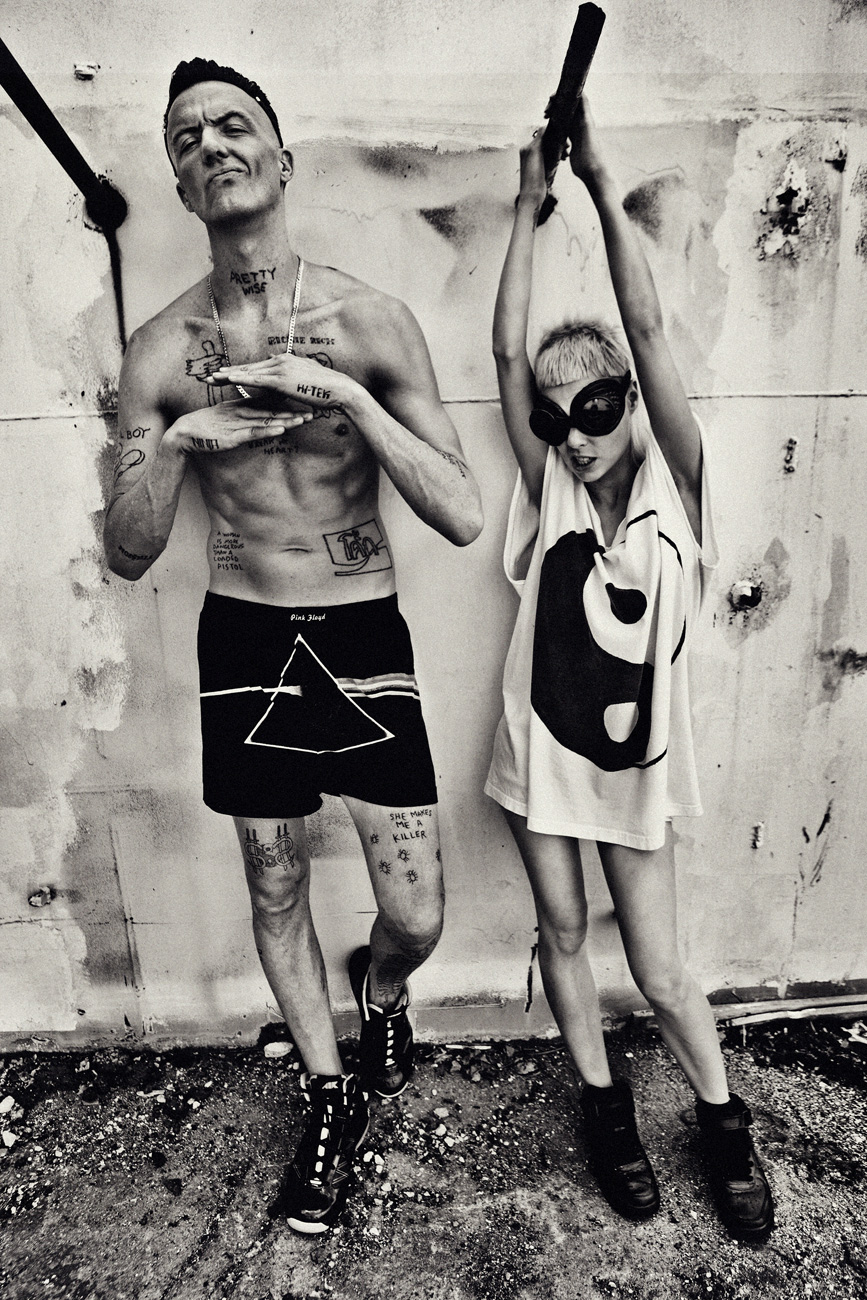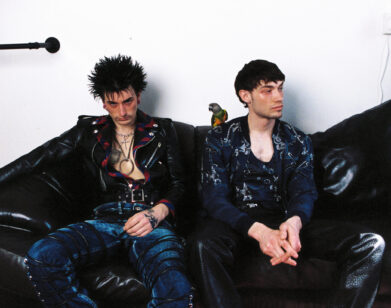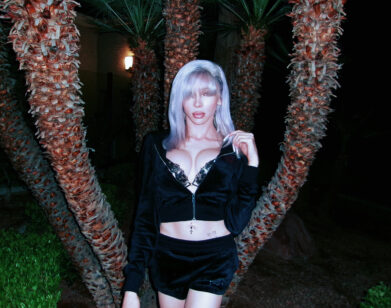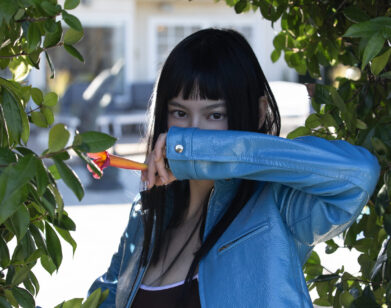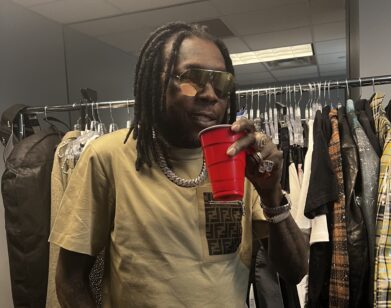Die Antwoord
When Die Antwoord’s videos for “Zef Side” and “Enter The Ninja” leapt online in late 2009, it was as if someone had doused the Internet in gasoline and lit a match. The two-and-a-half-minute “Zef Side” clip—which features the band members being interviewed on the dusty streets of their suburban Cape Town, South Africa, neighborhood before exploding into a lightning-fast rap-dance track—became an Internet sensation, garnering more than two million views. It also instantly transitioned the group from an obscure novelty act into a bona fide global phenomenon. Fronted by a gold-toofed, heavily tatted Watkin Tudor Jones, a.k.a. Ninja (known for performing in nothing but a floppy pair of Pink Floyd boxer shorts), a co-vocalist called Yo-Landi Vi$$er (a blonde pixie with a high-octave voice and a razor-sharp mullet), and backed by self-proclaimed “beat monster” DJ Hi-Tek (who rarely participates in photo shoots with the group and, at 25, is one of the world’s oldest known survivors of the disease Progeria, a genetic condition that causes sufferers to appear to prematurely age), the band is arguably the first-ever pop phenomenon to spring out of Cape Town. No small feat considering that their signature music—a rough-and-tumble amalgam of hip-hop and high NRG rave beats—is almost entirely informed by South African “zef” street culture. It’s also fair to say that no musical act in recent memory has generated such an intensely polarizing WTF?! kind of reaction.
With music, visuals, and oversize personalities that seem almost too freaky to be real, more than a few people have begun to question whether or not Die Antwoord is serious. Is it a joke? Performance art? The future of music? In reality, it might be a little bit of all three. “Seriously, it’s so fucking simple,” explains Ninja by phone from Osaka, Japan, where Die Antwoord are touring. “All we ever wanted to do was a) make music, and b) make a music video, and 3) take photos of ourselves and put it all on the interwebs. We didn’t know that anyone in America would like us. You know, it’s fucking South African white zef rap rave shit . . . and it’s also really fucking personal! Most of our music was made with just me and Yo-Landi writing stuff in, like, a desperate, horrible hole, not knowing what’s gonna happen and just not caring. We were just like, “Fuck everything!” We wanted to create the future.
Whether Die Antwoord (which means “the answer” in Afrikaans) accurately represent the future or not remains to be seen, but the band’s forward momentum is considerable. Having inked an international deal with Interscope Records, Die Antwoord will drop a new album this month (which will coincide with the bombastic club-banger “Evil Boy,” crafted by über-producer Diplo) and have already embarked on a high-exposure international tour schedule that included a trip to this year’s Coachella and opening gigs for M.I.A. If that weren’t enough, the band is planning a feature film and a documentary exploring black magic in South Africa’s ghettos. So, while it would still be easy to dismiss the grimy artifice of the band as a gimmick—especially considering that each member has a self-created moniker and the band bio on their official website lays out a highly improbable backstory involving prison and pregnancy—there’s no denying the authenticity of the music or their genuine excitement about making it. Ultimately, Die Antwoord represents something weirdly original—itself a rarity in the pop world today. Their music’s message might be profane (especially to those who understand Afrikaans curse words), but it’s empowering as well. Die Antwoord are all about parties, ass-kicking, and—more than anything—being oneself. As for the band’s contribution to the global awareness of South African culture, Ninja is characteristically modest about it. “You can get really deep about it, but basically zef culture is all about having the ultimate style,” he says. “And Die Antwoord represents that. We are fucking good at presenting our shit. Our music is kind of like The Lord of the Rings—you can just read it as a cool story, or you can get mad into it and look at the maps and learn all the elvish languages. Die Antwoord lyrics are like that. Tolkien is also from South Africa. So it’s basically JRR Tolkien, Neill Blomkamp’s District 9, and Die Antwoord as far as South Africa is concerned. We’re all on the same level.”
T. Cole Rachel is a frequent contributor to Interview.

